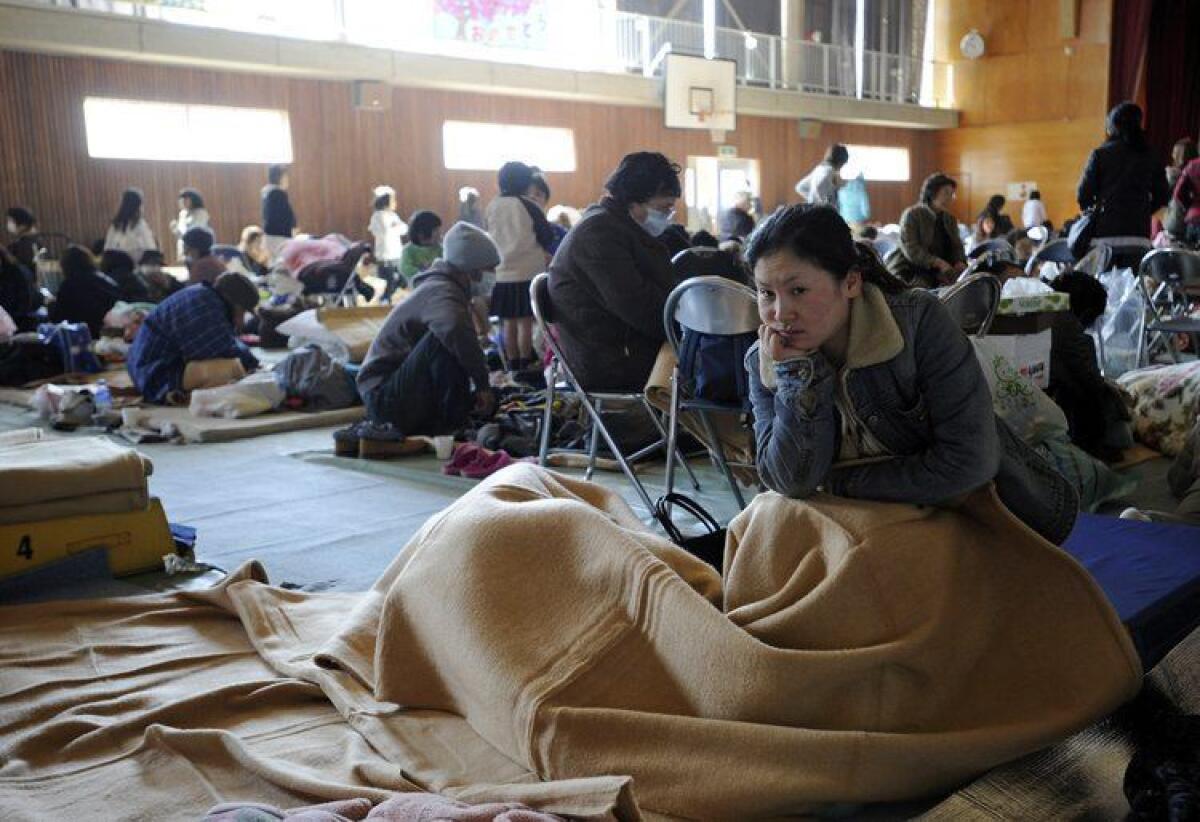For earthquake and tsunami survivors in Japan, the psychological consequences can linger

- Share via
Disaster survivors in Japan must not only deal with physical trauma from earthquakes and tsunamis, but with psychological distress that can strike immediately, soon after or long after the event.
“There will be people who will be able to move back to how things were, and there’s going to be a subset of people who are going to have more mental health issues,” said Melissa Brymer, a clinical psychologist and director of the Terrorism and Disaster Programs for the National Center for Child Traumatic Stress at UCLA.
Those more at risk for psychological problems, Brymer said, include people with a history of anxiety or depression, those who have been in a previous disaster, people who have suffered great physical trauma, and children who have been separated from their families.
Post-traumatic stress disorder -- an anxiety disorder occurring after a traumatic event -- can strike some immediately or long after a stressful episode. But those who are more resilient -- people with strong social support systems, good family and friend relationships or strong religious convictions, for example -- usually do OK. “The majority of people do get better, and there are effective ways to help them,” Brymer says.
Psychological counseling is no doubt being offered to victims and medical and emergency staff in Japan, she adds. “We also know that how a community supports itself can also be a mediating factor in how people deal with a disaster.” Self-reliant communities that support their neighbors and schools tend to cope better.
Anxiety can also be an issue for those on foreign shores waiting to hear from loved ones. Brymer recommends researching which forms of communication are working and which are not -- phones may not be working, but text messages might go through.
“Just because technologies are not working and someone hasn’t responded to you doesn’t mean there’s been a tragedy,” she says. “We know that after the Haiti earthquake it took some communities three or four days to reassure people that their loved ones were OK.”
More to Read
Sign up for Essential California
The most important California stories and recommendations in your inbox every morning.
You may occasionally receive promotional content from the Los Angeles Times.













